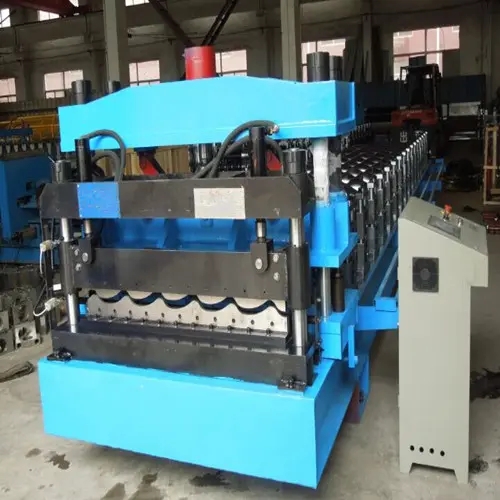
Roofing Sheet Roll Forming Machine Revolutionizing the Construction Industry
In the world of construction, efficiency and precision are paramount. One of the significant technological advancements that have made a remarkable impact on this sector is the roofing sheet roll forming machine. This sophisticated piece of equipment not only enhances productivity but also ensures quality and consistency in the production of roofing materials.
Understanding Roll Forming Technology
At its core, roll forming is a process where metal sheets are continuously fed through a series of rollers. These rollers shape the flat metal sheets into the desired profile—whether that be corrugated, standing seam, or any other design needed for roofing applications. The roofing sheet roll forming machine is specifically engineered to handle various types of metal, including galvanized steel, aluminum, and even copper, catering to a wide array of architectural needs.
The Advantages of Roofing Sheet Roll Forming Machines
1. Efficiency Traditional methods of roof sheet production can be time-consuming and labor-intensive. However, roll forming machines significantly reduce the time required to produce roofing materials. With the ability to operate at high speeds, these machines can produce long sheets of roofing in a matter of minutes, thereby fulfilling large-scale construction demands quickly.
2. Quality Assurance One of the main advantages of using a roofing sheet roll forming machine is the high level of precision it offers. Each sheet produced is uniform in dimensions, which ensures that they fit perfectly during installation. This consistency minimizes the risk of errors and wastage, leading to substantial cost savings in projects.

3. Customization Many roofing sheet roll forming machines come equipped with the ability to produce customized profiles as per client specifications. This flexibility allows contractors and builders to offer tailored solutions to their clients, whether it’s for residential, commercial, or industrial applications.
4. Durability and Strength The materials typically processed by these machines produce robust roofing solutions that can withstand harsh weather conditions. The roll forming process enhances the structural integrity of the roofing sheets, making them resilient against wind, rain, and snow.
5. Automation and Labor Savings Modern roll forming machines often come with automated features that reduce the need for manual labor. This not only helps in optimizing resources but also lowers labor costs. Automation frees up workers to focus on other crucial areas of the construction process, thereby improving overall productivity.
Applications in the Construction Industry
The applications of roofing sheet roll forming machines are diverse. They are widely used in residential housing, commercial buildings, manufacturing plants, and warehouses. These machines cater to various roofing styles, including but not limited to corrugated sheets, standing seam roofs, and tile profiles. Additionally, they can also produce related products like guttering, wall cladding, and flashings, making them versatile tools for any construction project.
Conclusion
The roofing sheet roll forming machine represents a significant leap forward in construction technology. By offering improvements in efficiency, quality, customization, and cost-effectiveness, it is transforming the way roofing materials are produced and installed. As the construction industry continues to evolve, embracing such innovative technologies will be crucial for companies aiming to thrive in a competitive market. For builders and contractors, investing in a roofing sheet roll forming machine could very well be the key to enhanced productivity and satisfied customers, paving the way for future successes in their projects.